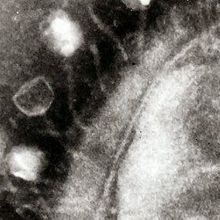Login
Subscribe404
Not Found
Is this what you were looking for?
tag dietary supplement immunology evolution microbiology cell molecular biology

The Role of Mom’s Microbes During Pregnancy
Carolyn A. Thomson and Kathy D. McCoy | Aug 1, 2021 | 10+ min read
Bacteria in the gut influence the production of antibodies and themselves secrete metabolites. In a pregnant woman, these compounds may influence immune development of her fetus.
Life Science
Simon Silver | Jan 7, 1990 | 6 min read
Department of Microbiology & Immunology University of Illinois Chicago - Through cloning and sequence analysis, researchers have identified the primary gene of the hereditary disease muscular dystrophy, thus leading to the characterizing of the primary protein product. Deletions contributing to an absence of the polypeptide dystrophin (0.002% of total muscle protein and 3,685 amino acids long) on the inner surface of the plasma membrane appear to be the primary cause for two types of muscul
Sharing the Bounty
Michelle G. Rooks and Wendy S. Garrett | Aug 1, 2011 | 10+ min read
Gut bacteria may be the missing piece that explains the connection between diet and cancer risk.

Targeting Antibiotic-Resistant Bacteria with CRISPR and Phages
Anna Azvolinsky | May 18, 2015 | 3 min read
Researchers develop a CRISPR-based, two-phage system that sensitizes resistant bacteria to antibiotics and selectively kills any remaining drug-resistant bugs.
Flow Cytometry: It's Not Just For Immunologists Anymore
James Kling | Jun 22, 1997 | 9 min read
A low-profile child of the '60s, flow cytometry didn't capture the imagination of most researchers until the early 1980s. The decade saw the birth of the AIDS epidemic, and as attention focused on HIV, researchers needed a method to accurately and reproducibly characterize immune cells. Flow cytometry was suddenly thrust into the spotlight. COMPLETE KITS: Bio-Rad’s KINESIS reagent kits for flow cytometry assays A flow cytometer shines one or more lasers on a sample of cells in suspension

Running on Empty
Bob Grant | Jun 1, 2017 | 10+ min read
Regularly taking breaks from eating—for hours or days—can trigger changes both expected, such as in metabolic dynamics and inflammation, and surprising, as in immune system function and cancer progression.
The Divine Cytokine
Bob Sinclair | Apr 2, 2000 | 10 min read
Tools for Cytokine Research Companies producing cytokines Courtesy of Alexis CorpCytokine Network Many proteins and peptides affect the growth, identity, and function of eukaryotic cells. Very often their effects are highly pleiotropic, making exact boundaries and distinctions between proteins such as hormones, growth factors, and cytokines difficult to pin down. The result is a nomenclature tangle almost as complex as the regulatory circuits these molecules mediate. Although this treatment of
Soybeans Hit Main Street
Barry Palevitz | Mar 19, 2000 | 8 min read
Once a favorite of Chinese emperors, tofu is now big time. From supermarkets to health food boutiques, diet-conscious Americans are buying soybeans, not just as tofu but in infant formula, soy milk, and soy burgers. Soy even has the Food and Drug Administration's seal of approval. Last October the FDA responded to a petition by Protein Technologies International, a St. Louis-based DuPont company specializing in soy products, by authorizing claims that soy protein is good for the heart. Acc
60 Members Elected to NAS
Barry Palevitz | Jun 25, 2000 | 6 min read
Editor's Note: On May 2, the National Academy of Sciences announced the election of 60 new members and 15 foreign associates from nine countries in recognition of their distinguished and continuing achievements in original research. Nearly half of the new members are life scientists. In this article, The Scientist presents photographs of some of the new members and comments from a few of them on their careers and on past and current research. A full directory of NAS members can be found online a
Notebook
Ricki Lewis | Apr 11, 1999 | 7 min read
Peanuts may be losing their bite PEANUT ALLERGY VACCINE Peanuts are more than just an annoyance on airplanes--for a few dozen people each year, they cause deadly anaphylactic shock. The only protection is knowledge of one's allergy and avoidance of the offending food. But most peanut-associated allergic deaths occur from peanut extracts added to prepared foods--additives that sometimes remain unlisted on labels. A peanut allergy vaccine could prevent such deaths. Kam Leong, a professor of biom